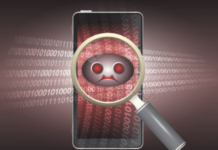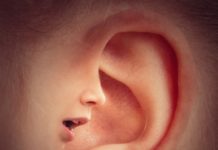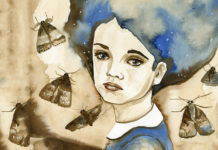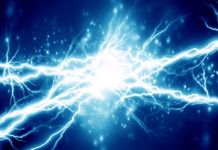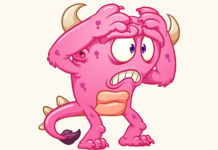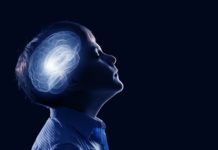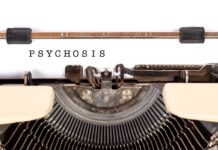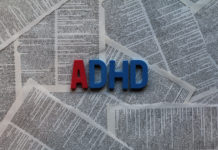Monarch eTNS Inspires “Stop the Psychiatric Abuse of Children!” (SPAC!)
The FDA approval of the Monarch eTNS device is the latest form of psychiatric-inspired child abuse. If not stopped, it will afflict millions of children in unimaginably damaging ways. It has inspired us to form Stop the Psychiatric Abuse of Children (SPAC!) a new international advocacy organization.
The Media Scolds Marianne Williamson (And Gets It Wrong)
Journalists have called Marianne Williams’ comments on depression dangerous and irresponsible. A closer look reveals that her “opinions” on mental health treatment are more in line with the science, and that the know-it-all assertions by Cooper and colleagues are belied by it.
Brave New Apps: The Arrival of Surveillance Psychiatry
Large, centralized, digital social networks and data-gathering platforms have come to dominate our economy and our culture. In the domain of mental health, huge pools of data are being used to train algorithms to identify signs of mental illness. I call this practice surveillance psychiatry.
Talking About Psych Diagnoses and Drugs: A Primer for Parents & Professionals
It is important to tell parents the truth about what can and cannot be known about their child. In this way, people come to appreciate that labels and treatments offered by psychiatric professionals are far from being grounded in hard science.
Prepared, Yet Unprepared: My Involuntary Hospitalization Adventure
Overall I learned a great deal during my hospital adventure. The whole experience seemed like a comedy of errors. For me the only people there who were truly out of touch with reality were staff members. All of the patients were very present, albeit in some distress. The reasons for their distress were not unreasonable.
Inside an Online Charter School: Labeling Kids “Disabled” for Profit
I’d thought this teaching job would be my chance to make positive changes in children’s lives. But most of the recommendations in students' IEPs were related not to reading, writing, and ’rithmetic but to behavior control and obedience to adults. And the school seemed to be working very hard to prove that the kids were disabled and to get them certified as such.
Against the Odds: ‘Unimproved Schizophrenic’ to Yale PhD
Forty years after I had first been admitted to the hospital, I was ready to confront my past. So, I sent for my hospital records, and I read them. As an experienced clinician, I recognized immediately what the doctors hadn’t been able to see in 1960: my problem wasn’t ‘schizophrenia’ but PTSD, connected with incest.
The Voices My Daughter Hears
The voices were extraordinary; in a way, they were like ghosts. I could not see them, but only divine them by the turmoil they stirred up in Annie. They were not polite house ghosts who knew when to leave; they were ne’er-do-wells she could not get rid of. They were tormentors and torturers, testing the limits of her sanity, blackmailing her into submission.
A Smashing Victory — And an Insidious New Threat
Afraid of facing me in court, the state gave up entirely and a young man was freed from involuntary ECT treatment. It was a total victory. Meanwhile, the Psychiatric Industrial Complex is finding more subtle ways to inflict electrical energy upon the brains of children labeled with ADHD.
Q&A: How Can I Motivate My “Deadbeat” Teenager?
My 19-year-old son has been diagnosed with ADHD, depression, and ODD. He refuses to go to school or get a job; instead, he just hangs around and plays video games. He has prescriptions but refuses to take them. Frankly, he contributes nothing to the household but stress and is a bad role model for his siblings. How can I make him take his meds and shape up?
The Connection Between Traumatic Brain Injury and Young Adult Suicide Risk
Researchers present evidence of a connection between the experience of traumatic brain injury in childhood and increased risk for suicide attempt in early adulthood.
Helping Children to Overcome OCD: 6 Creative Strategies for Parents
Here, Dr. Ben Furman offers a creative approach to helping children who struggle with OCD. Explaining why behaviors like reasoning, reassuring, and superstitious rituals don’t work, he suggests engaging alternatives that teach kids how to manage their “worry monster” and make sense of their distressing experience.
FDA Approves Using Electricity All Night Long on Children’s Brains
The FDA just approved sales of an electrical device called the Monarch eTNS to be used on the brains of children diagnosed with so-called ADHD. The device “sends therapeutic signals to the parts of the brain thought to be involved in ADHD,” according to the FDA press release. “Therapeutic signals”? Really?
Yoga and Mindfulness Benefit Youth with Autism Spectrum Disorder
A new review finds preliminary evidence for yoga and mindfulness-based interventions for youth diagnosed with Autism Spectrum Disorder (ASD).
Children Taking ADHD Drugs More Likely to Take Antidepressants as Teens
Adhering to a commonly prescribed medication for ADHD in children is associated with higher chances of being prescribed antidepressants in adolescence.
Teacher Wellbeing Matters for Student Mental Health
Teacher’s personal wellbeing plays a role in students’ mental health outcomes, suggests a new study.
Exposure to Antidepressants in the Womb Linked to Autism
Researchers, publishing in Toxicology Research, review the evidence that antidepressant exposure in the womb is linked to autism spectrum disorders (ASD) in humans.
De-Othering “Schizophrenia” by Placing it in Socio-Historical Context
Understanding schizophrenia as a non-enigmatic, understandable human experience goes against a history of institutional “othering” that has sustained psychiatric legitimacy and further marginalized service-users.
Increase in Suicide Attempts by Self-Poisoning in Youth
Researchers shed light on hike in attempted suicide by self-poisoning in young adults between 2011 and 2018.
Mobile Apps for Mental Health Lack Transparency in Data Sharing
Research illustrates privacy concerns with how mental health applications collect and share users’ data.
Fighting for the Meaning of Madness: An Interview with Dr. John Read
Akansha Vaswani interviews Dr. John Read about the influences on his work and his research on madness, psychosis, and the mental health industry.
The Answers in the Attic: A Mother-Daughter Story of Overmedication and Recovery
In 1959, my mother suffered what people referred to as a nervous breakdown after my sister’s birth. I puzzled over why Mom never recovered, until I found Dad’s collection of medical records in my sister’s attic. How could anyone give a nursing mother with three small children so many drugs in such a short period of time?
Exposure to Antidepressants in the Womb Linked to Autistic Behavior in Mice
Researchers experimenting on mice found that exposure to fluoxetine (Prozac) in utero resulted in behaviors considered in animal studies to be analogous to autism in humans.
Service-Users See Long-Term Antipsychotic Use as Compromising Recovery, Review Finds
A new meta-review examines the experiences of antipsychotic drugs use among people diagnosed with a psychotic disorder.
Study Reveals Inconsistency in ADHD Diagnostic Determinations
Researchers compare differences between research and clinical diagnoses of ADHD and explore the consistency of clinical determinations over time



